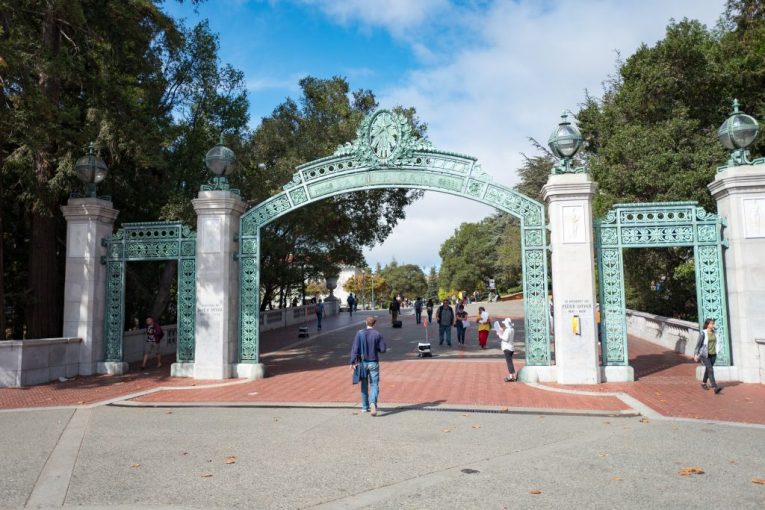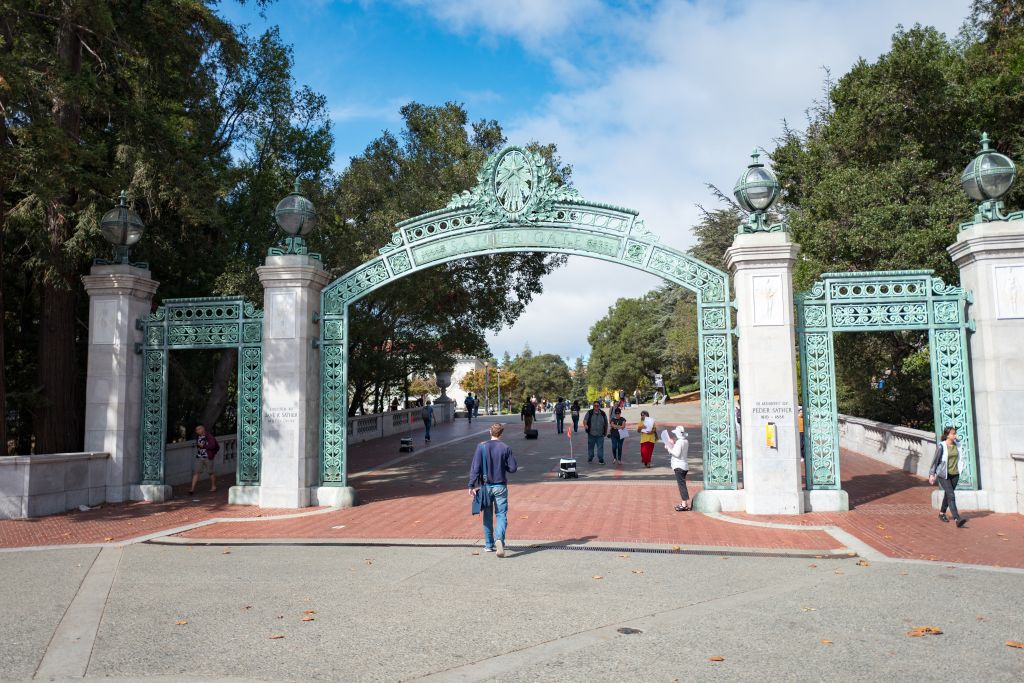

By Vanguard Staff
Sacramento, CA – An appellate court decision to restrict enrollment at UC Berkeley has triggered a huge and growing backlash. The latest shoe to fall was Governor Newsom filing an amicus brief in Save Berkeley’s Neighborhoods v. Regents of the University of California, a case before the California Supreme Court that involves issues of college access and affordability, the state’s housing affordability crisis, and creating new pathways to success for Californians.
According to a release from the Governor’s office on Friday, “The brief argues that the Supreme Court should block a lower court’s order capping enrollment while the ruling is under appeal because the order would undermine critical priorities of the state.”
In the brief, they argued, “The Court of Appeal’s decision would undermine these longstanding priorities of the State and force UC Berkeley to shut the door on over 5,000 potential college freshmen and transfer students, depriving the opportunity for 1 out of every 3 undergraduate students who would have otherwise  enrolled.”
enrolled.”
The Governor’s brief adds, “This will have a disproportionately disparate impact on students from disadvantaged or underrepresented backgrounds.
“We can’t let a lawsuit get in the way of the education and dreams of thousands of students who are our future leaders and innovators,” said Governor Newsom. “I urge the Supreme Court to step in to ensure we are expanding access to higher education and opportunity, not blocking it.”
In the brief, the Governor argued, “The State has a profound interest in maintaining – and strengthening – its exceptional system of public higher education, with its focus on access and affordability, equity, and innovation. The State’s public higher education system drives equitable and upward mobility, helping first-generation and lower-income Californians realize their full educational and professional potential.”
The Governor’s office in the brief noted that the state, consistent with the Governor’s budget priorities, has made historic investments in higher education, including a total of $47.1 billion in the last enacted budget.
“Expanding college access is the keystone of the higher education vision, with the state supporting expanded enrollment of nearly 5,000 full-time equivalent students within the UC System and nearly 10,000 full-time equivalent students within the California State University System in the 2019-20 budget,” the Governor’s office said.
The Governor’s California Blueprint proposal builds upon these priorities by expanding access to education at all levels, with a focus on expanding enrollment for in-state residents and community-college transfers at the UC System, including UC Berkeley.
They have called for increasing enrollment by more than 7000 from 2023-24 through the 2026-27 school year, with a significant portion of the new enrollment growth occurring at UC Berkeley, UC Los Angeles, and UC San Diego—tracking demand from prospective students and families.
In addition, the state would be expanding CSU enrollment by 14,000 over the same period.
“In turn, both systems have committed – in exchange for historic investments – to close equity gaps in graduation, expand access for transfer students, create debt-free pathways, and increase by 25 percent the number of graduates entering into careers in climate action, health care, education, and technology,” the Governor’s office said.
The Governor adds, “The impact of restricting admission to UC Berkeley could forever change the lives of over 5,000 students, especially students from disadvantaged backgrounds. UC Berkeley provides an unmatched opportunity for low-income students, students from diverse backgrounds, and transfer students to access a high-quality education at a prestigious university at public-school tuition rates.”
UC Berkeley contends that it could stand to lose $57 million from decreased enrollment.
The Governor’s brief argues, “Not only will this loss have cascading impacts on UC Berkeley, as detailed in the Regents’ Petition, but it will severely undermine the Governor’s aforementioned priorities and strategic investments in higher education.”






Another way to look at this, people, is that UC Berekely’s model of ever-increasing enrollment is a major factor contributing to UC Berkeley students facing not only insanely high rents, but difficulty in finding housing at all. Freezing Berkeley enrollment would decrease pressure on pegging rental prices and unavailability of housing. This wouldn’t need to hurt the ability of CA students to get an education, as argued. Despite perceptions to the contrary, UC Merced is not located slightly on the far side of the Gates of Héll. It is much cheaper to expand the campus there and enroll more students to the UC system. It’s also very close to Yosemite. One can also go there for a year or two or three and transfer to acquire a degree officially at UC Berkeley or elsewhere. Rental prices in Merced? Much less than Berkeley!
More likely a large number of students rerouted from UC Berkeley will end up at UC Davis than UC Merced.
How exactly is pumping in more students and more graduates ” maintaining – and strengthening – its exceptional system of public higher education?”
Also, how is the city of Berkeley supposed to manage the land under it’s jurisdiction? Yes, it has an obligation to provide housing for UC Berkeley students (unlike the city of Davis and UCD) but it also has a right in governing it’s own land. So if Tesla decided had their HQ in Berkeley and then decided to grow by 1000s of employees would they have a right to demand that the city plan for more housing? Probably not. The two would have to come to an agreement or Tesla would grow somewhere else or move all together. The court would not be involved and likely would not recognize the cities obligation to provide housing beyond what it has.
The city of Berkeley came to an agreement with UCB last year that addressed these issues.
https://news.berkeley.edu/2021/07/14/new-agreement-with-city-sets-fresh-tone-in-town-gown-relations/
This ruling was in response to a lawsuit by a group that apparently isn’t satisfied with that. Much the same kind of thing that happens here.
Yes, that’s where I was going. Unlike Davis and UCD, UCB and the city of Berkeley have to work together and come to an agreement.
My earlier comments on articles related to UCB and Berkeley and how they relate to Davis emphasized the differences between the two situations based on jurisdiction.
“How exactly is pumping in more students and more graduates ‘ maintaining – and strengthening – its exceptional system of public higher education?’”
By improving the human capital of those who can successfully do the work required without watering down the curriculum. If there are more people who can make the grade then increasing the enrollment is good for society overall.
When I came to CA in 1960 there were 16 million people here now there are around 40 million. That is many more people to educate.
Overall, college enrollments have been dropping like a rock (across the state and country) for years.
Given its own self-interest, the UC system will accommodate a larger share of a shrinking pie. A “last man standing” scenario in regard to colleges/universities. (Though women make up the majority of enrollments, now.)
Which likely means a broader range of student ability/preparedness, and a further decline in the value of college degrees (even at a UC, depending upon the major).
Good thing that they’ve already done-away with SATs. Seems like they’re anticipating what will occur.
Nope. You’re devaluing the degrees. And from the local perspective it doesn’t help to pump in that more students. The vast majority of the aren’t going to do a darn thing once they graduate for the local community. Or do you think college towns should just suck it up and take on the burden of students in their community?
This mindless tribalism the University of California needs to end.
It’s not “mindless”. It’s purposeful, and driven by self-interest on the part of the institutions.
The students themselves are pawns to be used to support that interest. Sort of a “it’s for the kids” type of argument that K-12 school systems sometimes use.
But probably good for Davis that the darn thing doesn’t close down, at least. (Again, purposeful self-interest.)
No, I meant by supporters like Ron G. Who think simply: education = good. less students = less education = bad. That we must preserve some mystical magical idea about the University of California regardless of it’s financial, social and environmental impact.
I was agreeing with you.
However, I figure that Davis (and Berkeley) are somewhat-dependent upon their UCs.
Santa Cruz and Santa Barbara, not so much.
I know you were agreeing with me. I was clarifying my comment.
The cities all need to act in their own self interest. That means working with the universities. But it doesn’t mean being obligated to them to their detriment. That’s kind of the point I’ve been trying to make.
Good for the Governor for supporting educational opportunities at UC Berkeley.